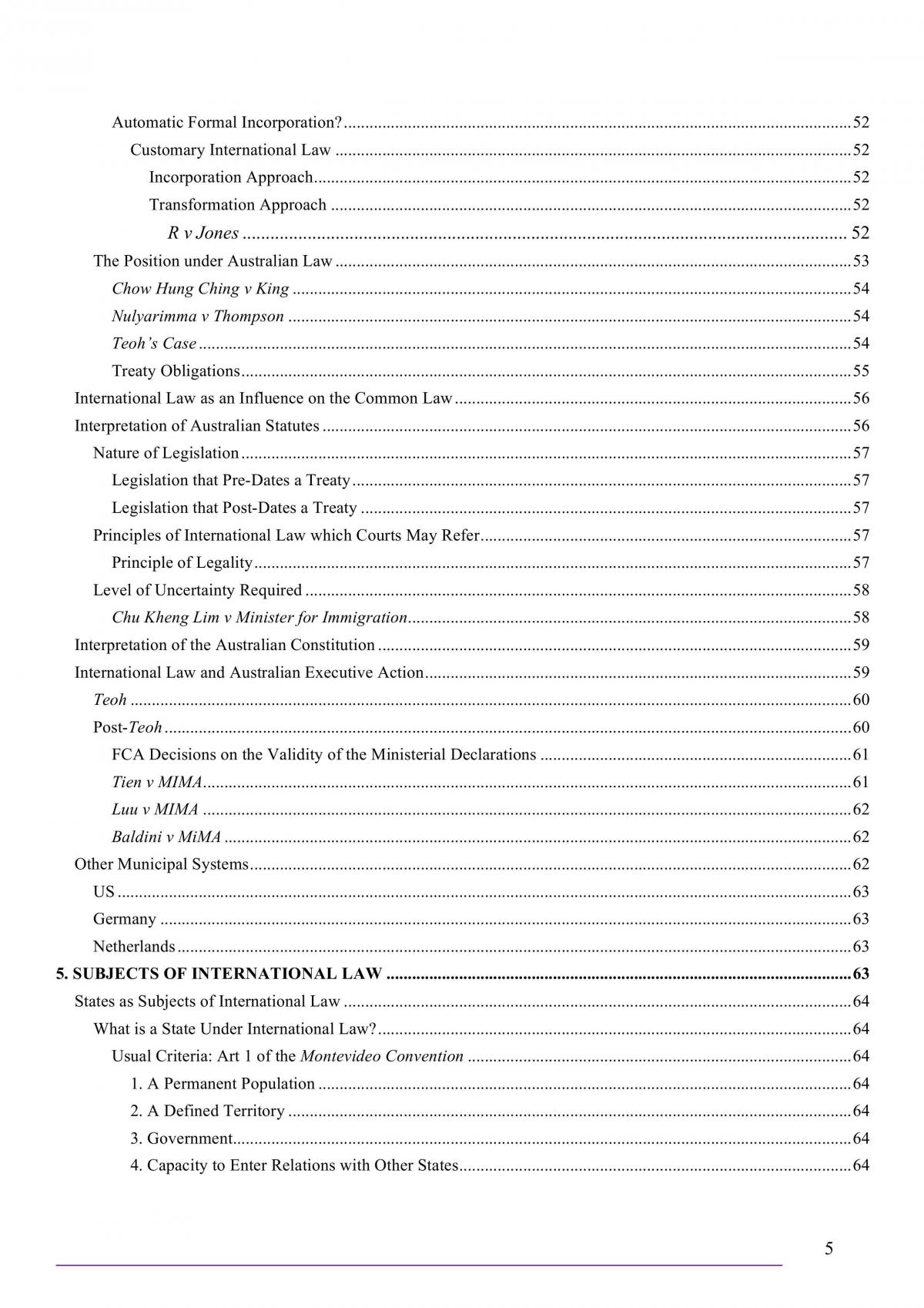Find
Search for over 200,000 study notes and past assignments!
Swap
Download study resources by swapping your own or buying Exchange Credits.
Study
Study from your library anywhere, anytime.
2012 LAWS5154 Private International Law Notes
LAWS5154 - Public International Law
4 Found helpful • 160 Pages • Complete Study Notes • Year: Pre-2021
1. INTRODUCTION The Western European Perspective is that international law is the law regulating the activities of sovereign States. For example, the first edition of Oppenheim (1905) stated that ‘States solely and exclusively are the subject of international law’. What is a state? For the purposes of international law, a state is the nation or country. In Australia’s context it is the federal government. The state is static, though the governments that represent states change. Law of the international community? The growth of interdependence sometimes referred to as ‘globalisation’ is also a reflection of the strengthening of communal bonds. Henkin argued that international law was like municipal law, it was a set of norms, which protected our rights, expectations, and property – although here, the individuals were substituted for states. INADEQUACIES OF TRADITIONAL DEFINITIONS The traditional definition of international law does not mention international organisations. Such a definition is inadequate as international organisations are now subjects of international law and not just objects: see Reparations Case. For example, the United Nations and European Union. Notably, the 9th edition of Oppenheim reads: ‘States are the principal subjects of international law’. The Third Restatement states that international law is concerned with ‘the conduct of States and of international organisations, and with their relations inter se, as wells as some of their relations with persons, whether natural or juridical’. IS INTERNATIONAL LAW REALLY ‘LAW’? Austin’s definition: Law properly so-called must be issued out by a sovereign, who is subject to no greater power... International law regulates the actions of sovereigns, who are in actual fact, absolutely sovereign an autonomous—it is for this reason international law can only be law ‘improperly so-called.’ AN UNUSUAL DEFINITION Firstly, Austin has provided a particularly narrow definition of the word ‘law’, and has provided no compelling reason why we should adopt it. To the contrary, Austin’s definition has been criticised by positivists and natural lawyers alike, notably HLA Hart (The Concept of Law) and FA Hayek. AN UNHELPFUL DEFINITION Secondly, Professor Hart further notes that by adopting a very narrow definition of what is law, Austin is also effectively expanding the class of actions which he treats as morality. This serves to obscure fundamental differences between international law and other issues of morality such as etiquette and rules of clubs. This point is also made by Waldock (1963).
This document is 50 Exchange Credits
More about this document:
|
|
This document has been hand checkedEvery document on Thinkswap has been carefully hand checked to make sure it's correctly described and categorised. No more browsing through piles of irrelevant study resources. |
|
|
This is a Complete Set of Study NotesComplete Study Notes typically cover at least half a semester’s content or several topics in greater depth. They are typically greater than 20 pages in length and go into more detail when covering topics. |
|
|
What are Exchange Credits?Exchange Credits represent the worth of each document on Thinkswap. In exchange for uploading documents you will receive Exchange Credits. These credits can then be used to download other documents for free. |
|
|
Satisfaction GuaranteeWe want you to be satisfied with your learning, that’s why all documents on Thinkswap are covered by our Satisfaction Guarantee. If a document is not of an acceptable quality or the document was incorrectly described or categorised, we will provide a full refund of Exchange Credits so that you can get another document. For more information please read Thinkswap's Satisfaction Guarantee. |

Studying with Academic Integrity
Studying from past student work is an amazing way to learn and research, however you must always act with academic integrity.
This document is the prior work of another student. Thinkswap has partnered with Turnitin to ensure students cannot copy directly from our resources. Understand how to responsibly use this work by visiting ‘Using Thinkswap resources correctly’.
Browse UQ Subjects

















